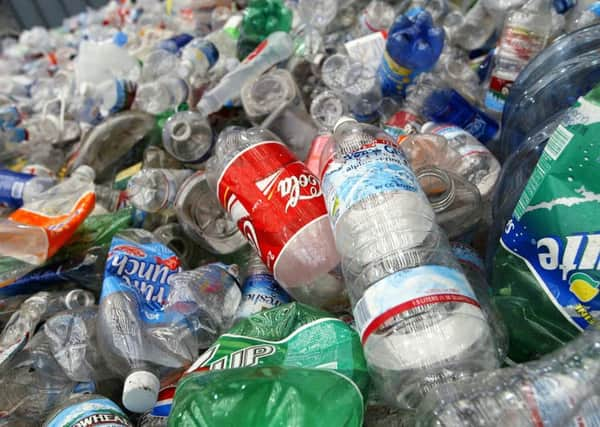James Mackenzie: Deposit system welcome '“ but we must go further


Last month, in her Programme for Government speech, the First Minister declared that Scotland would, after all, have a deposit return system for empty drinks containers. Environmental activists concerned about litter on land and at sea cheered the announcement, as did many in Scottish local government. This system will make their work easier to deliver and less costly.
A deposit system will have a major impact on litter, on waste and on recycling. It does, however, only cover three materials – glass, plastic and cans – and only when used in drinks containers. If we want to make real progress towards being a zero waste society, one which ends mass landfill and incineration, one which beats litter and makes responsible use of limited natural resources, much more needs to be done.
Advertisement
Hide AdAdvertisement
Hide AdThe idea of a waste hierarchy is more than 40 years old, with the top priority given to prevention of waste in the first place, with reuse and recycling as best options only when those have failed. Measures such as deposit return boost recycling and reduce disposal, but the top of the hierarchy is where we must focus.
The other shift is away from simply badgering the public into recycling more, and towards the idea of tackling the problem before consumers even see the end product. Even the most scrupulous recyclers amongst us still end up with bins full of plastic from food packaging. In all but the most well-served parts of Scotland there is no low-packaging alternative. And if you buy a new fridge, TV or computer, you can expect to have vast blocks of polystyrene in the box which can be recycled almost nowhere.
We need governments, whether at Holyrood or Westminster, prepared to create a regulatory framework which provides longer-term clarity, in turn encouraging investment and innovation in product design, packaging and infrastructure. Both governments have set a welcome deadline for the end of sales of non-electric cars. Perhaps similar deadlines could be set for the end of non-recyclable plastic packaging.
A good example is the EU’s 2003 directive on waste electrical and electronic equipment, which made manufacturers responsible for the disposal of these items. In essence, it limits the extent to which manufacturers can make society pay their costs of production. If companies want to make profits in this area, they need to take responsibility for their products after they reach the end of their life.
That’s the theory, anyway. The original target was for just 2 per cent of this equipment to be recycled. If we really want change, we surely need to move towards making them responsible for 100 per cent of their products after use, and for reducing packaging to the minimum.
Some materials should also be banned, for specific uses or across the board. Polystyrene, for example, is very hard to recycle, and New York is trying to ban its use in takeaways, where corrugated cardboard is a better alternative.
The principle of the polluter pays is neatly illustrated by deposit return. Right now, we all collectively pay the costs of littered drinks containers. With a deposit return system, those who pay will be the producers and only those members of the public who do not to recycle.
It’s time to look across everything we make and sell from that perspective, to find solutions that work for different purposes and materials, and to commit ourselves to ending the throwaway society for good.
James Mackenzie is an advisor to the Have You Got The Bottle? campaign for deposit return and a former head of media for the Greens